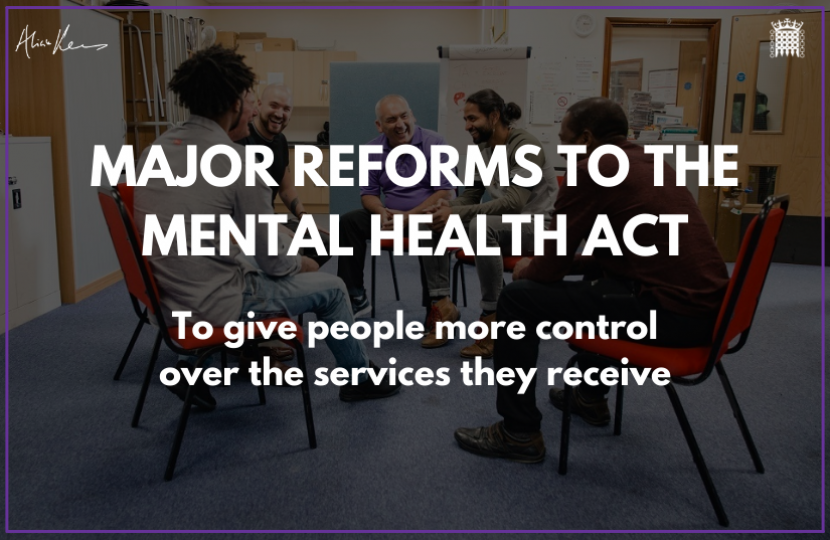
Today the Government announced major reforms to the Mental Health Act to give people more control over the services they receive. The Act, which is 40 years old, will be updated and brought into the 21st century.
At the heart of the proposed reforms to the Mental Health Act is greater choice and autonomy for patients in a mental health crisis, ensuring the act’s powers are used in the least restrictive way, that patients receive the care they need to help them recover and all patients are viewed and treated as individuals.
The Government will consult on a number of proposed changes, including:
- introducing statutory ‘advance choice documents’ to enable people to express their wishes and preferences on their care when they are well, before the need arises for them to go into hospital
- implementing the right for an individual to choose a nominated person who is best placed to look after their interests under the act if they aren’t able to do so themselves
- expanding the role of independent mental health advocates to offer a greater level of support and representation to every patient detained under the act
- piloting culturally appropriate advocates so patients from all ethnic backgrounds can be better supported to voice their individual needs
- ensuring mental illness is the reason for detention under the act, and that neither autism nor a learning disability are grounds for detention for treatment of themselves
- improving access to community-based mental health support, including crisis care, to prevent avoidable detentions under the act – this is already underway backed by £2.3 billion a year as part of the NHS Long Term Plan


